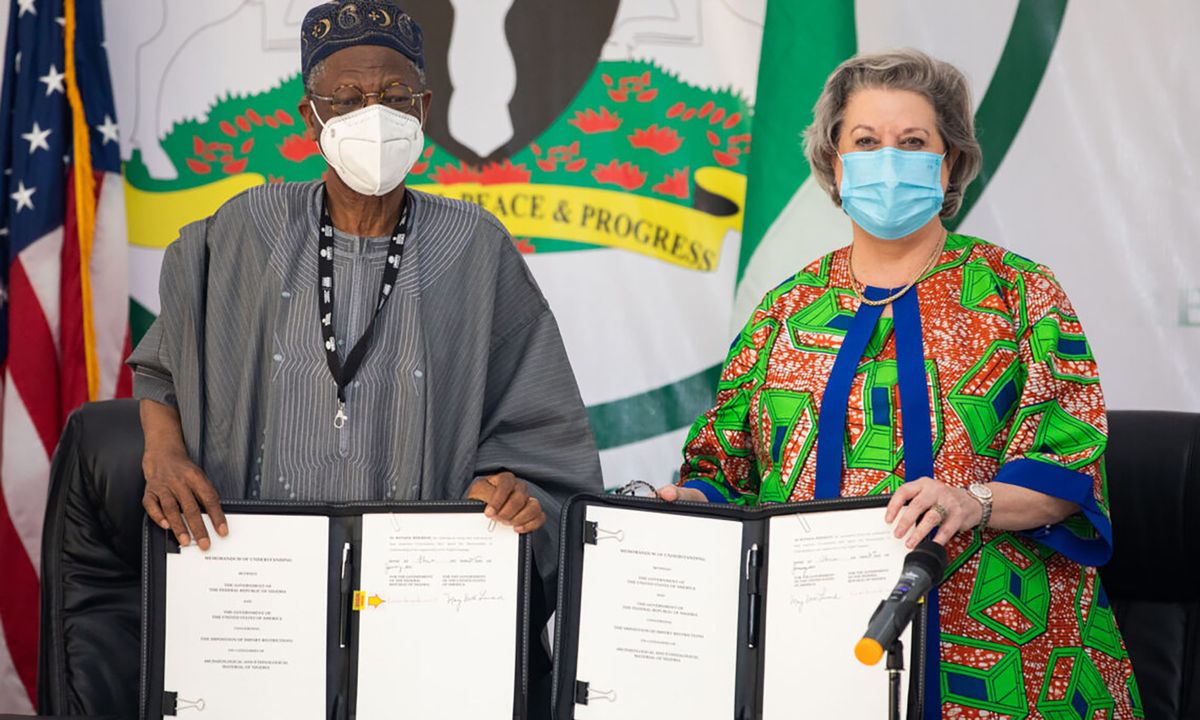An agreement between the US and Nigeria, concerned with the protection and preservation of cultural property, was signed last week.
The bi-lateral memorandum of understanding was signed by the US ambassador and Nigeria’s Minister of Information and Culture, in a ceremony held in the African country’s capital, Abuja. The move signals intent to work together on tackling the illicit trafficking of items, namely archaeological and ethnological material dated between 1500BCE and 1770CE.
“This agreement will certainly reduce the incentive to pillage our irreplaceable archaeological and ethnological material,” says Alhaji Lai Mohammed, the minister of information and culture, for Nigeria. “We implore other friendly nations to take a cue from the United States of America and join us in finding means of preventing the illegal importation of our antiquities into those nations.”
The US has comparable agreements with other countries in Africa, including Egypt and Algeria, implemented as part of its commitment to the 1970 UNESCO Convention onthe Means of Prohibiting and Preventing the Illicit Import, Export and Transfer of Ownership of Cultural Property.
The agreement ensures that artefacts covered under the understanding will require appropriate export licences, with failure to do so resulting in seizure, “without Nigeria going through the labyrinth of judicial and diplomatic processes which most of the time [are] costly and time consuming”, adds Mohammed.
Initially running for five years, the agreement also comes at an interesting juncture for Nigeria, which has been independent since 1960 and increasingly making moves to protect its heritage, following centuries of loss and damage. Colonialism, poor resourcing and inadequate legislation have all played a part, with the most famous losses felt by the Benin Kingdom over the 19th century. Looting throughout the 1980s and 1990s (including widespread museum thefts, as with that at the National Museum), have been adjoined by ongoing concerns over the destruction of major archaeological sites.
“Pillage of cultural property deprives a nation of its cultural heritage and identity,” says Lee Satterfield, the US assistant secretary of state for educational and cultural affairs. The US, she adds, “is unwavering in its commitment to counter cultural property trafficking and this new bi-lateral agreement provides a strong framework to partner with Nigeria to preserve its rich heritage for future generations”.
Attempts to repatriate cultural property already removed from the country are also heating up. A growing number of institutions on both sides of the Atlantic are pledging to return items, with last year’s developments including Germany’s agreement to hand back more than 1,000 Benin Bronzes taken during the 1897 massacre, Quai Branly Museum’s return of 26 items, the University of Oxford’s decision to return 145 objects and the National Gallery of Art in Washington, DC returning a sculpture of a brass cockerel.


